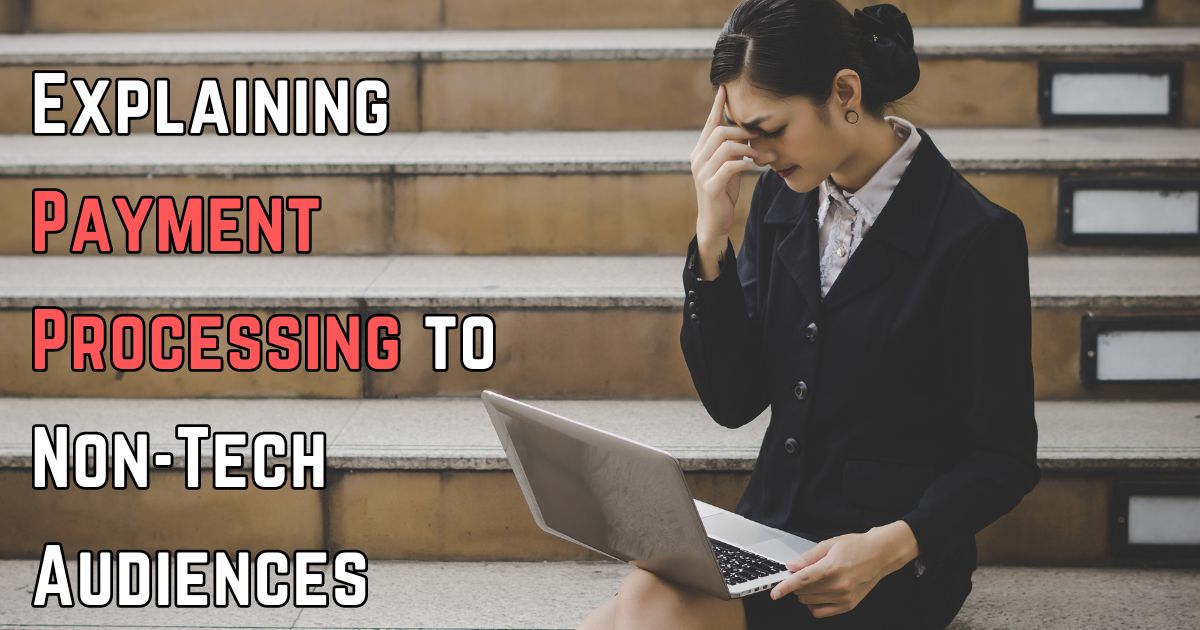
| January 31st, 2024 |
Demystifying Digital Transactions — A Beginner’s Guide to Payment Processing!
In today’s digitally-driven world, online transactions have become an integral part of our daily lives. Whether you’re ordering your favorite meal, purchasing the latest gadget, or subscribing to a streaming service, understanding the journey of your payment is essential. In this blog post, we will demystify payment processing for non-tech audiences, breaking down the complex mechanisms into digestible pieces.
Understanding the Basics —
Let’s start with the fundamentals. Payment processing is the entire cycle that takes place when you make a purchase, be it online or in-store. It involves several key players and steps to ensure a secure and efficient transfer of funds. The primary components include the payer (you), the payee (the merchant), and the intermediaries that facilitate the transaction.
The Payment Gateway — Your Digital Bridge:
At the forefront of online transactions is the payment gateway, often compared to a digital bridge connecting the customer and the merchant. This secure channel encrypts sensitive information such as credit card details, ensuring a safe passage for your payment. Think of it as the virtual equivalent of a card swipe machine at a physical store.
Card Issuers and Acquirers —
Behind the scenes, your bank or card issuer plays a crucial role. When you initiate a transaction, the payment gateway communicates with the bank to verify your account details and whether the funds are available. Once approved, the acquirer (merchant’s bank) confirms the transaction, and the payment is processed.
The Dance of Authorization and Settlement —
Authorization and settlement are two vital steps in payment processing. Authorization occurs in real-time when you make a purchase. Your bank verifies the transaction’s legitimacy, ensuring you have sufficient funds. Settlement, on the other hand, happens later, usually at the end of the day, when the funds are transferred from your account to the merchant’s account.
Payment Processors — Orchestrating the Symphony:
Payment processors act as conductors in the orchestra of payment transactions. These companies specialize in facilitating transactions between the payer and payee, managing the flow of information, and ensuring that the funds move seamlessly. Popular examples include Stripe, PayPal, and Square.
E-Wallets and Alternative Payment Methods —
In addition to traditional card payments, e-wallets and alternative payment methods have gained popularity. Services like Apple Pay, Google Pay, and PayPal allow users to link their accounts and make transactions with just a few clicks. These platforms add an extra layer of convenience and security to the payment process.
The Role of Encryption and Tokenization —
Security is paramount in payment processing. Encryption and tokenization are two techniques employed to safeguard sensitive information. Encryption converts data into a code that is unreadable without the proper decryption key. Tokenization replaces sensitive information with a unique token, ensuring that even if intercepted, the data is useless to potential attackers.
Navigating the Checkout Experience —
For the end-user, the checkout experience is a critical aspect of payment processing. Merchants strive to create a seamless and user-friendly interface to enhance customer satisfaction. This includes optimizing the number of steps, providing multiple payment options, and incorporating security features to build trust.
The Importance of Compliance —
Payment processing operates within a strict regulatory framework. Compliance with industry standards and regulations, such as the Payment Card Industry Data Security Standard (PCI DSS), is mandatory. These regulations ensure that businesses adhere to security protocols, protecting both customer and merchant interests.
Real-Time vs. Delayed Payments —
Understanding the difference between real-time and delayed payments is crucial. Real-time processing occurs instantaneously, common in online transactions. Delayed payments, prevalent in subscription services, involve periodic charges at predetermined intervals. Recognizing these distinctions helps users manage their finances effectively.
International Transactions and Currency Conversion —
In our interconnected world, international transactions are commonplace. Payment processors and banks handle currency conversion seamlessly, allowing users to make purchases in various currencies. Understanding the associated fees and exchange rates is essential for making informed decisions when engaging in cross-border transactions.
Troubleshooting and Customer Support —
Despite the robust infrastructure, occasional hiccups may occur. Failed transactions, payment discrepancies, or other issues may arise. Reliable customer support and effective troubleshooting mechanisms are vital for resolving problems promptly and ensuring a positive customer experience.
Looking Ahead — Innovations in Payment Processing:
The landscape of payment processing is continually evolving. Innovations such as blockchain technology, contactless payments, and decentralized finance (DeFi) are shaping the future. Staying informed about these advancements empowers users to embrace new technologies and trends as they emerge.
Conclusion — Empowering Users in the Digital Era:
In conclusion, payment processing may seem like a complex dance of ones and zeros, but at its core, it’s a carefully orchestrated symphony of technology and security protocols. By understanding the basics, users can navigate the digital payment landscape with confidence. Whether you’re a seasoned online shopper or new to the world of e-commerce, this knowledge empowers you to make informed decisions and engage in secure and seamless transactions. As technology continues to advance, staying curious and informed will be the key to unlocking the full potential of digital payments in our ever-evolving world.
